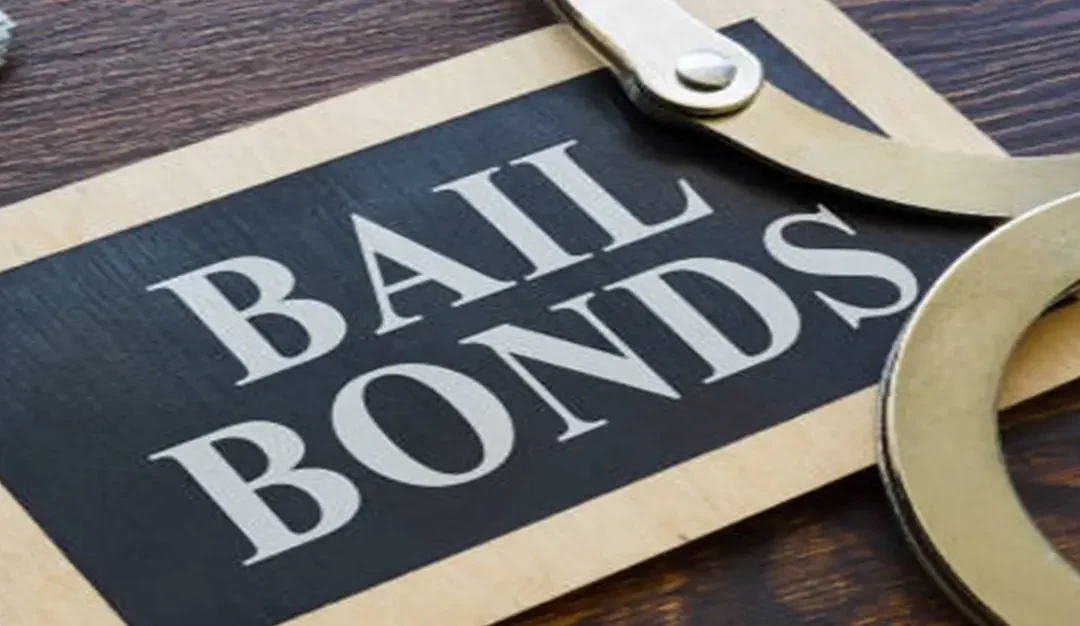Exactly how to Browse the Intricacies of a Bail Bond: Tips for First-Time Users
Navigating the complexities of a bail bond can be overwhelming for those unfamiliar with the process. Numerous new customers discover themselves confused by the terminology and responsibilities included. Comprehending crucial principles such as premiums and collateral is crucial. In addition, selecting a reputable bondsman can considerably ease the trip. There are important facets and typical challenges that can complicate issues better. Exploring these can provide beneficial insights for any individual encountering this challenging scenario.
Recognizing Bail Bond Terminology
What crucial terms should one recognize with when passing through the world of Bail bonds? Recognizing fundamental terminology is necessary for steering Bail bonds efficiently. The term "Bail" refers to the amount of money or residential or commercial property required to secure a defendant's launch from wardship, guaranteeing their appearance in court. "Bail bond" denotes an agreement between the defendant, the court, and a Bail bondsman, that offers the Bail amount in exchange for a charge, normally 10-15% of the total Bail. "Collateral" may be needed, including properties vowed to assure repayment if the accused falls short to show up (bail bonds service). "Premium" is the non-refundable cost paid to the bondsman for their services. Additionally, "loss" happens if the accused does not follow court appearances, resulting in the loss of the Bail quantity. Knowledge with these terms encourages individuals to make enlightened choices throughout the Bail process
The Different Sorts Of Bail Bonds
When thinking about the numerous alternatives for safeguarding an offender's launch, one might question the different kinds of Bail bonds available. One of the most typical kind is the surety bond, where a bondsman guarantees the complete Bail quantity in exchange for a cost, commonly around 10%. An additional alternative is a cash money bond, which needs the accused or their family to pay the whole Bail quantity in cash money upfront, refundable upon court appearance. Residential or commercial property bonds entail using property as collateral to safeguard the Bail quantity. Furthermore, some jurisdictions supply federal bonds for federal offenses, which have particular demands. Finally, there are immigration bonds for individuals apprehended by migration authorities. Each type offers an unique purpose and may differ pertaining to expense and demands, making it necessary for first-time individuals to understand their choices completely before proceeding.
The Bail Bond Process Explained
Recognizing the bail bond procedure is vital for any person steering the judicial system. When an individual is detained, a court establishes a Bail quantity based upon the severity of the costs and the accused's trip risk. A bail bond can be acquired with an accredited Bail bondsman if the Bail is unaffordable. The defendant or co-signer normally pays a non-refundable cost, usually around 10% of the total Bail amount.
As soon as the bond is protected, the bondsman guarantees the court that the defendant will stand for all set up hearings. If the offender stops working to appear, the bondsman is accountable for paying the complete Bail quantity, which can lead to healing efforts to locate the person. Throughout this process, communication with the bondsman is vital, as they give advice and support to assure compliance with court demands and responsibilities.
Your Civil liberties as a Co-Signer
Co-signers play a necessary duty in the bail bond process, as they are lawfully accountable for making sure that the offender sticks to the conditions of the bond. This responsibility features details get more info civil liberties that co-signers need to recognize. To start with, co-signers can obtain full disclosure pertaining to the regards to the bond, consisting of charges and potential responsibilities. They also deserve to be informed if the accused breaches any problems of the bond, such as falling short to appear in court.
Furthermore, co-signers can ask for a copy of the bail bond contract for their records. They are qualified to comprehend the consequences of their monetary commitment, including the opportunity of being held responsible for the complete quantity of the bond if the offender does not comply. Ultimately, co-signers have the right to withdraw their assistance under certain problems, although this might require notifying the bail bond representative ahead of time.

Usual Blunders to Avoid
Maneuvering the bail bond process can be intricate, and co-signers usually make a number of typical errors that can result in complications. One significant mistake is failing to read the entire Bail agreement, which may include vital terms and problems that impact their monetary responsibility. In addition, co-signers sometimes take too lightly the significance of understanding the accused's situation, including their court dates and potential consequences of non-compliance. One more constant blunder is overlooking to keep communication with the bondsman, which can hinder the procedure if concerns emerge. Co-signers might also forget the financial ramifications of Bail, not fully understanding the costs entailed or the opportunity of shedding collateral. They might assume that when Bail is posted, their duty ends, not understanding that they stay liable till the case is settled. Staying clear of these mistakes can greatly reduce the bail bond experience for new users.
Frequently Asked Inquiries

How Do Bail Bond Companies Identify the Costs Amount?
Bail bond business usually establish the premium amount based on the overall Bail amount, the threat connected with the defendant, and the firm's policies - bail bonds service. Aspects like the defendant's criminal history and flight danger likewise influence this decision
Can I Discuss the Terms of a Bail Bond?
The possibility of negotiating bail bond terms varies by business. Some bail bondsmans might use adaptability, while others stick strictly to established standards. It is recommended to discuss options straight with the bail bond representative for quality.
What Happens if the Offender Misses Their Court Date?
If an offender misses their court date, a bench warrant might be issued for their arrest. In addition, the bail bond might be waived, bring about economic consequences for the co-signer and potential lawful problems for the accused.
Are Bail Bond Charges Refundable After the Case Ends?
Bail bond fees are commonly non-refundable, despite the instance end result. This cost makes up the bond representative for the service of safeguarding the offender's release, covering threats and administrative costs entailed in the procedure.
Can I Use Security Other Than Property for a Bail Bond?
The inquiry of utilizing collateral beyond residential or commercial property for a bail bond typically occurs. Several bail bond representatives accept numerous kinds of collateral, such as vehicles or important products, but policies might vary by agency and jurisdiction.
"Bail bond" signifies an agreement in between the offender, the court, and a Bail bondsman, who offers the Bail quantity in exchange for a cost, commonly 10-15% of the overall Bail. The most common kind is the surety bond, where a Bail bondsman guarantees the complete Bail amount in exchange for a charge, commonly around 10%. If the Bail is unaffordable, a bail bond can be acquired with a qualified Bail bondsman. Co-signers play a vital role in the bail bond process, as they are legally responsible for making certain that the accused adheres to the conditions of the bond (bail bonds service). Bail bond companies generally figure out the premium amount based on the total Bail quantity, the danger associated with the offender, and the company's policies